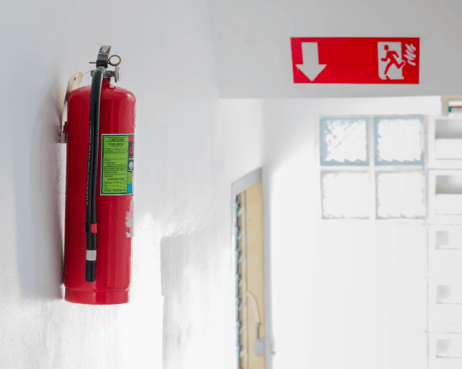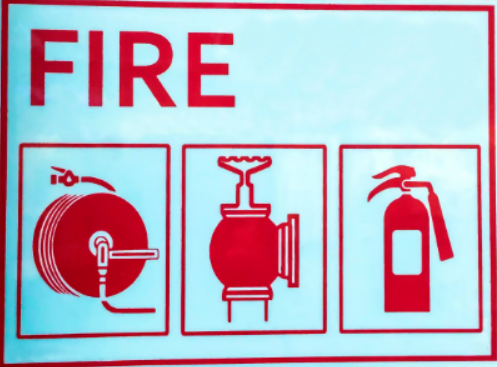Industrial buildings are often characterised by complex operations, large machinery, and hazardous materials, making them susceptible to fire incidents. The consequences of a fire in an industrial setting can be devastating, resulting in property damage, business interruption, and, most importantly, potential harm to employees. In this blog post, we will discuss essential fire protection tips specifically tailored for industrial buildings to minimise the risk of fires and ensure the safety of everyone on-site.

Develop a Comprehensive Fire Safety Plan:
A well-defined fire safety plan is the foundation of effective fire protection in industrial buildings. It should include emergency response procedures, evacuation routes, assembly points, and the roles and responsibilities of designated personnel. Regularly review and update the plan as needed, and ensure that all employees receive proper training on fire safety protocols.
Conduct Regular Fire Risk Assessments:
Regular fire risk assessments are crucial in identifying potential fire hazards and implementing appropriate preventive measures. Assess the layout of the industrial building, identify flammable materials, and evaluate ignition sources. Consider factors such as storage practices, electrical systems, machinery maintenance, and housekeeping procedures. By understanding the specific fire risks, you can implement targeted fire protection strategies.
Install and Maintain Fire Detection Systems:
Early detection is vital in minimising the damage caused by a fire. Install a robust fire detection system, including smoke detectors, heat detectors, and fire alarms, throughout the industrial building. Regularly inspect and maintain these systems to ensure they are in proper working order. Promptly address any issues or faults to avoid false alarms or compromised fire detection capabilities.
Implement Adequate Fire Suppression Systems:
Industrial buildings may require specialised fire suppression systems based on the specific risks present. Common systems include sprinkler systems, foam-based suppression systems, and gaseous suppression systems. Engage with fire protection experts to determine the most suitable fire suppression system for your facility. Regularly inspect, test, and maintain these systems to ensure their effectiveness.

Proper Storage and Handling of Flammable Materials:
Industrial buildings often house flammable materials such as chemicals, fuels, and gases. Proper storage and handling of these materials are crucial in reducing fire risks. Store flammable substances in designated areas with adequate ventilation and fire-rated storage cabinets. Clearly label containers, train employees on proper handling procedures, and enforce strict protocols to prevent accidents and minimise the potential for fire spread.
Maintain Electrical Systems:
Electrical malfunctions are a common cause of industrial fires. Regularly inspect and maintain electrical systems, including wiring, outlets, switches, and circuit breakers. Ensure compliance with electrical codes and standards. Avoid overloading circuits, promptly address any electrical issues, and encourage employees to report potential electrical hazards.
Promote Fire Safety Training and Awareness:
Education and awareness are key to preventing and responding effectively to fires in industrial buildings. Conduct regular fire safety training sessions for employees, covering topics such as fire prevention, emergency evacuation procedures, and proper use of fire extinguishers. Encourage employees to report fire hazards or potential risks promptly, fostering a culture of proactive fire safety.

How Snapfix Can Help:
Fire protection in industrial buildings is crucial for safeguarding employees, minimising property damage, and ensuring business continuity. By implementing software like Snapfix, you can create a comprehensive fire safety plan allowing you to carry out regular fire risk assessments, install and maintain fire detection and suppression systems, store flammable materials properly, maintain electrical systems, and promote fire safety training and awareness. Industrial buildings can significantly reduce the risk of fires and respond effectively in case of emergencies. Prioritising fire protection measures ensure the safety of employees, protects assets and maintains the integrity of industrial operations.
To receive all the latest Snapfix platform updates, industry news and opportunities make sure to sign up for our weekly Snapfix Newsletter here.



